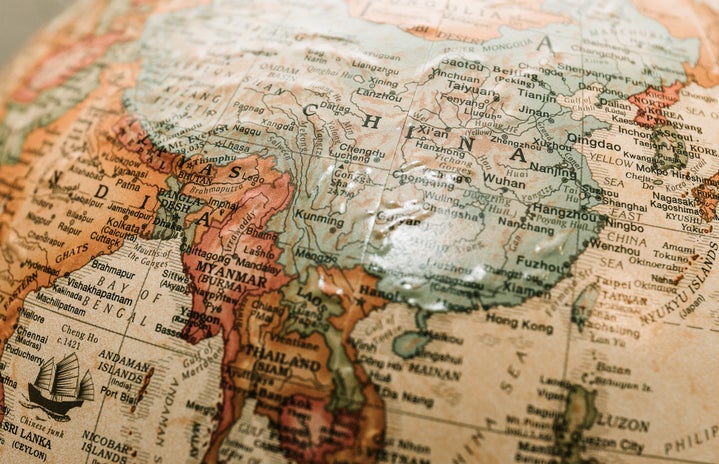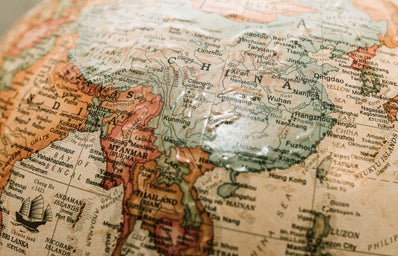Interviewer’s Introductions: Welcome to my third of several articles based around Women’s rights worldwide (Read the past ones here)! This series is meant to bring awareness to people who may not know what life is like in different countries as a woman. None of this is for debate, as it is the interviewee’s opinion and view of their own country and their experiences within it. Thank you!**
1. What is your full name?
My name is Uma Chidambaram.
2. How old are you? Do you feel like your age has affected your worldview? How so?
At the age of 21, I packed my bags and moved from Kerala (a small state located on the southern coast of India). I was a newlywed, pregnant, and an immigrant which was not an easy combination to have. I never like to call my decisions that I made at a young age a mistake, rather they’re learning experiences, so at the age of 21, and new to the U.S., you can only imagine the amount of learning experiences I had. To start off, my first location to live was California. Although that was not my choice but rather the company’s, the cost of living, especially with my son and husband, was too much to handle. In California, I would step out of the house, take a breath, and that itself would cost money. I even went as far as to try to hide my son so I could avoid paying the exponential increase in rent. Being 46 years old and living in America for this long, I’ve definitely picked up on a few things. I catch myself putting aside my emotions and focusing on the logical decisions to make as I’ve learned, that’s usually best for the family. I am able to view things holistically rather than focusing on every little bump that occurs. Age certainly has added experience and maturity in my thinking, and because of this I am able to maintain a more positive outlook on the world.
3. What is your gender and preferred pronouns?
I am a female and my preferred pronouns are she/her/hers.
4. Do you think sexuality is perceived differently from where you lived compared to the rest of the world?
I don’t think sexuality is talked about much, or talked about at all. It is assumed you’re attracted to the opposite gender, and the idea or even consideration of same-sex attraction is unheard of within my generation. I don’t completely understand why this is, but just like many things within the Indian culture, we simply ignore it. I do hope things have changed and there are more open conversations with children, as I believe that is important in building the relationship. However, I doubt much has changed.
5. Do you consider yourself a feminist? Why or why not?
In mainstream media within the US, especially nowadays, the term ‘feminist’ is often misinterpreted to mean believing women are greater than men. The answer to that is no, I do not believe women are greater than men. I believe that women have overcome a severe number of obstacles and have had to work twice as hard to prove themselves. I also believe that as an immigrant woman in the business industry, I found myself being insecure about every little thing. From my intellect to my choice of wearing a dress, I’ve been judged on my capabilities constantly. I would not wish this on any person, regardless of their gender, so under the proper meaning of feminist, yes, I am. I believe in the quality of both genders. I am originally from India where male members in a family were given priority and privilege over women in all aspects. But things are now changing with educated women in India and with social media being one of the biggest influencers.
6. In your personal experience, how do you think your life differs from a man’s?
Yes, there is a huge difference in lifestyle, work experiences, and even familial matters. Women, even today, still have to outperform and be the best of the best to gain an ounce of respect or attention. We cannot be seen as weak or emotional as men will associate us to the ridiculous stereotype of women. At the same time, we cannot be too harsh, or we’ll be seen as ‘bitchy.’ There is no in between, and finding balance is difficult, so we have to thrive to be a superstar everywhere. In my position, I have to enforce the rules and be assertive, otherwise I’ll never get things done. Running a company has no room for societal standards, and this is what I’ve learned over the course of running this company. I’ve stuck to my roots and stood my ground, which is why my company is able to maintain its success. Men, in my opinion, are able to maintain a more laid-back lifestyle and do things at their own pace, and it will never be misinterpreted.
7. Since moving to the US, what have you noticed that is better and/or worse in regards to how women are treated?
I cannot speak for every woman’s experience in the US; however, I can say I’ve noticed a difference within my own family. Men are able to see women in positions of power and have become normalized to this, so it is no longer a threat to them. My daughter is raised under the values that her life is equivalent to a man’s and she’s able to see many powerful women on TV and in government, that she has become inspired to be one of these powerful women. This being said, you could also argue that the US has made men immune to the idea that there is an inequality. The US is able to hide this distinguishment so well, that men seem to think there is no longer a difference for us.
8. How do you think India has made progress toward changing gender norms, if any at all?
There is no denying of change and progress in India, in the big cities we can see an increase of women in the workforce, specifically STEM. My offshore branch contains 100 female employees, which is a great accomplishment for us! I do think there is still huge room for improvement as the norm of women meant to be in the kitchen and taking care of the kids is still there, so the work is essentially doubled for the working mom. In addition, the enforcement of arranged marriages are still there, which insinuates a daughter’s only purpose is to get married. I think these values are enforced not only by the older way of thinking but the government ruled by men, we need more representation of women in politics especially in India.
9. What are things that men can do in India that would simply be unheard of a woman doing?
I think it’s more of little things, on the surface level everything a man does is seen as ‘okay’ for a female to do. However, wearing revealing clothing is definitely not encouraged because for men its seen as an invitation for nonconsensual sex. Although the entire basis of Hinduism is equality amongst all living things, there are still religious places where women are not allowed to enter. Domestic abuse is normalized from men to women, however, not the other way around (it shouldn’t be but it’s an example). A man leaving their unborn child and pregnant wife is normal, however, a single mother is blamed for getting pregnant and the men leaving.
10. What customs and stereotypes did you grow up with in regards to gender? Do you still follow/believe them?
I grew up in a single mother household because my father died young. We weren’t the wealthiest and she was the sole form of income. My mother defied most stereotypes set at the time, however, there were some instilled in our culture that’s been passed down some including:
– Learning how to cook
In comparison to my brother, who never learned, I had to learn. I still follow this, but I get annoyed when my husband doesn’t cook. I taught my son and daughter how to cook because it’s a basic life skill.
– The man is meant to lead prayers in religious ceremonies
Yes I still follow it because the priest tells me to.
– Women are always meant to be complacent and poise
No I do not, I’m a CEO, if I was complacent I’d never get things done.
– Women should not wear revealing clothing
Technically yes, but that’s only because I was raised never wearing revealing clothing, so it is weird if I do now.
11. If you could change one part of society in regards to human rights, what would you change? Do you think this is specific to where you’re from or should it be changed throughout the entire world?
The changes have to be for the entire world. Even in large corporations, the CEOs and Senior leadership are all male. I feel still a white tall male gets accepted more than any other gender or color. That needs a massive change. Education, knowledge and intelligence need to be given priority and preference over physical appearance, race or gender.


